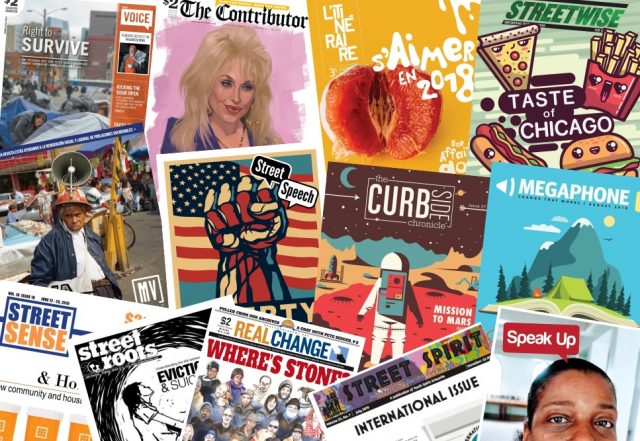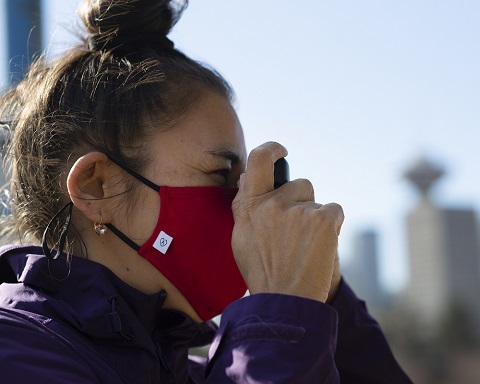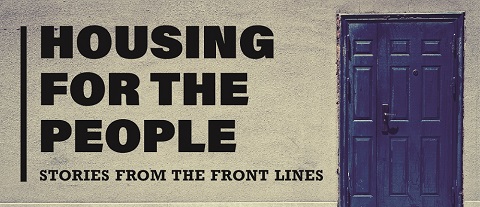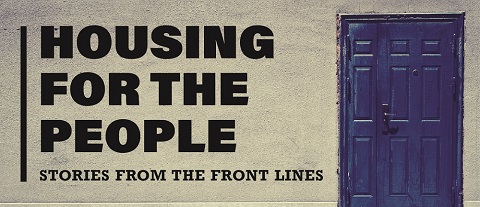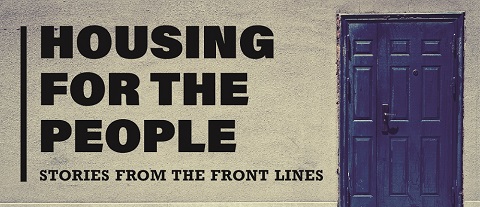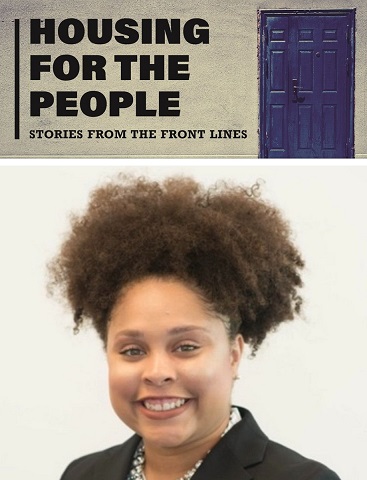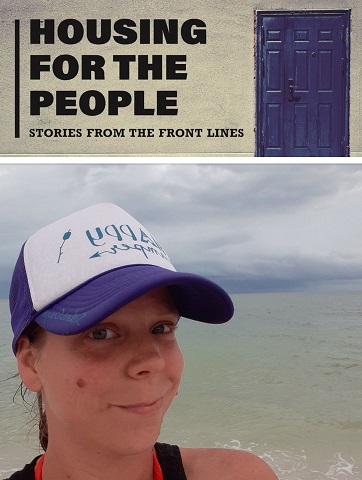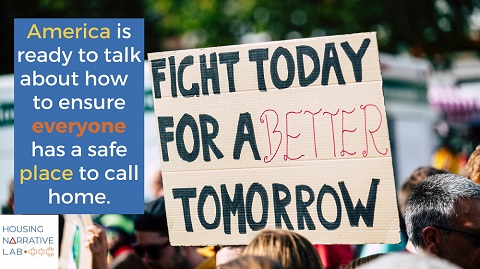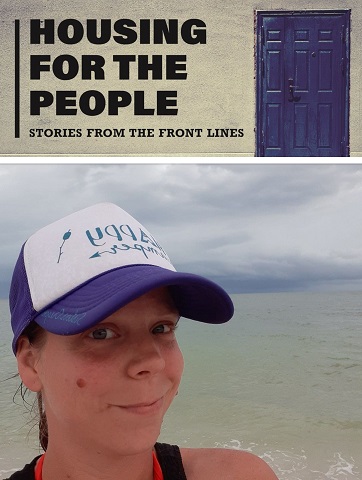By Camille Teste, L’Itinéraire
“Of course there is love here! I have seen couples fall in love on the street like in any other relationship,” says Brendan, a young man who speaks with great gentleness. “People who live in these conditions face mountains of problems and I guess that brings them closer together. It’s not the easiest life, but there’s love in it.”
Brendan is 27 years old and he belongs to an iconic group in Montréal: The Squeegee Punks. The group is made up of about twenty people and it owes its name to the squeegee – the English term for the tool with a rubber blade with which they wash motorists’ windshields in exchange for a few pennies.
We find several of them at the intersection of Saint-Laurent Boulevard and Pine Avenue. Jason and Brendan agree to talk to us, while the others prefer to work. It’s 3pm and there’s traffic on the boulevard and work to be done.
Every time the light turns red, members of The Squeegee Punks make their way between the cars and select a windshield. They wash it first and ask for permission afterwards. Some motorists let them do it. Others get angry. The owner of a Toyota even gets out of his car, overwhelmed with irritation. The person who cleaned that particular windscreen is used to behaviour like this; he also seems to enjoy it.
Sober for love
Sitting on a bench, Jason and Brendan watch their coworkers, amused.
For a few months now, Brendan has been sober: he hardly drinks any more. “I still drink,” he says. “But it’s nothing compared to before. I don’t do drugs anymore. Besides, I don’t live on the street anymore.”
If the young man has emerged from his addictions, it is thanks to his partner, with whom he entered into a relationship a year ago. “She brought me back to life. If it wasn’t for her, I’d still injecting myself every day,” he says.
Together, they have a place outside the city and he travels here every day. “The relationship we have together is special. We walk down the street, we hold hands. Like normal people,” he smiles. “She’s a little more responsible than I am: she goes to university. But she accepts what I do. She sees that I am doing my best to change. The proof is that I had a job interview today!”
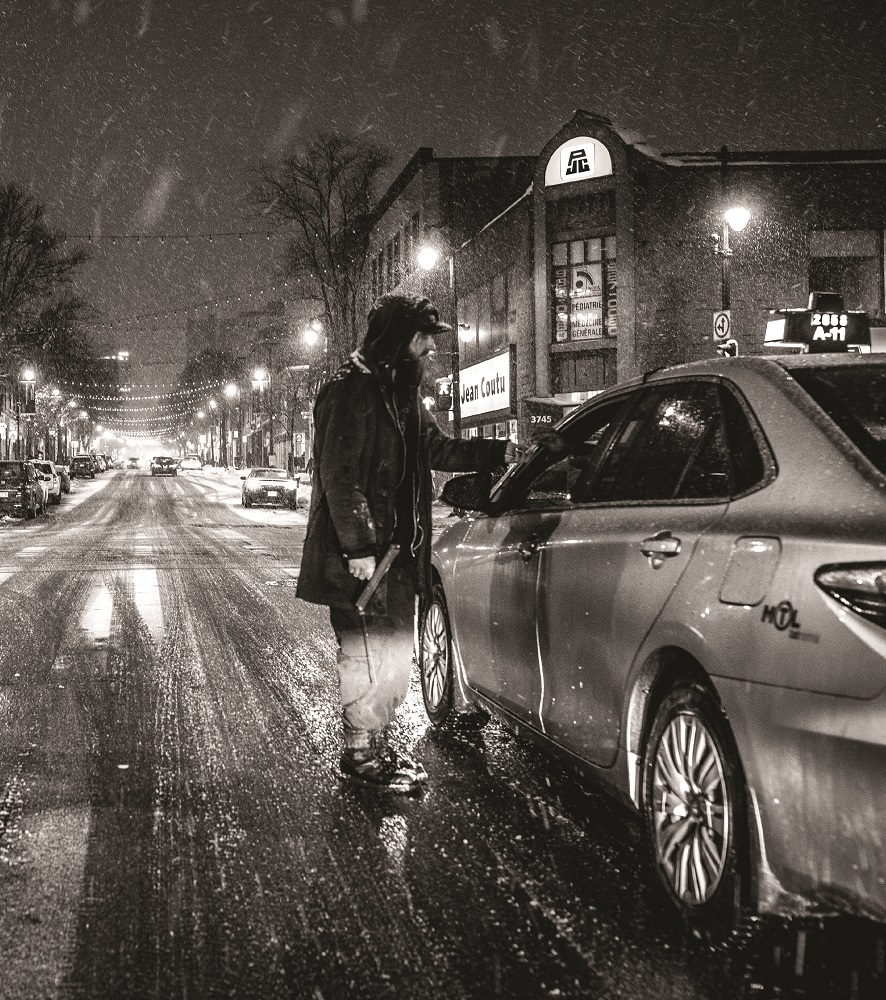
At almost thirty years old, Brendan appears sincere. He says that he is the kind of person who looks for a serious relationship: “It’s because I’m getting older!” He believes that love can last forever.
This confession makes Jason, a 44-year-old with clear eyes, laugh: “I’ve been married before. I got divorced about ten years ago. I’m a little reluctant to get involved now,” he admits. “Honestly, today, I don’t know anyone who stays in a relationship with the same person for more than seven years. Maybe it’s because everything is more fast-paced, including love.”
A street family
Apart from his squeegee and the little bit of beer stored in a plastic bottle, Jason doesn’t really look like a member of The Squeegee Punks. His gestures are handled, controlled. Unlike his peers, his clothes are relatively sober. However, this man, who has defined himself as a punk since before his school years, has spent almost half his life on the streets.
Because of their age difference, Brendan considers Jason a kind of father to him. “Because he won’t let me put myself in stupid situations,” he says.
Both are very affectionate towards each other, which is a necessity for Jason. “People don’t live long on the streets. Most of them last five years, no more. Ninety-nine percent of my friends died,” he says bluntly. “Among the squeegees, many of us no longer have families. So we recreated one to survive.”
“We spend a lot of time together: we help each other, and we make sure everyone gets up in the morning and stays alive,” Brendan adds. “And then we share everything. If I buy a sandwich, Jason will get half. That’s love too – it’s a form of mutual protection.”
How did they get to this point? It’s hard to find out as the two men remain evasive. Around us, passers-by keep their distance. Most of the time, they ignore the presence of the group. Some go around them; some even change sidewalks. Jason and Brendan are used to it and they don’t take offence. Montreal is their city as much as it is for all the other people around them.
What worries Jason is that the state of the street is getting worse in terms of general indifference. “People are getting poorer and poorer and more and more alone,” he says. “There is more and more violence, more and more drugs. I feel like I’m the only one who sees that the middle class is disappearing.”
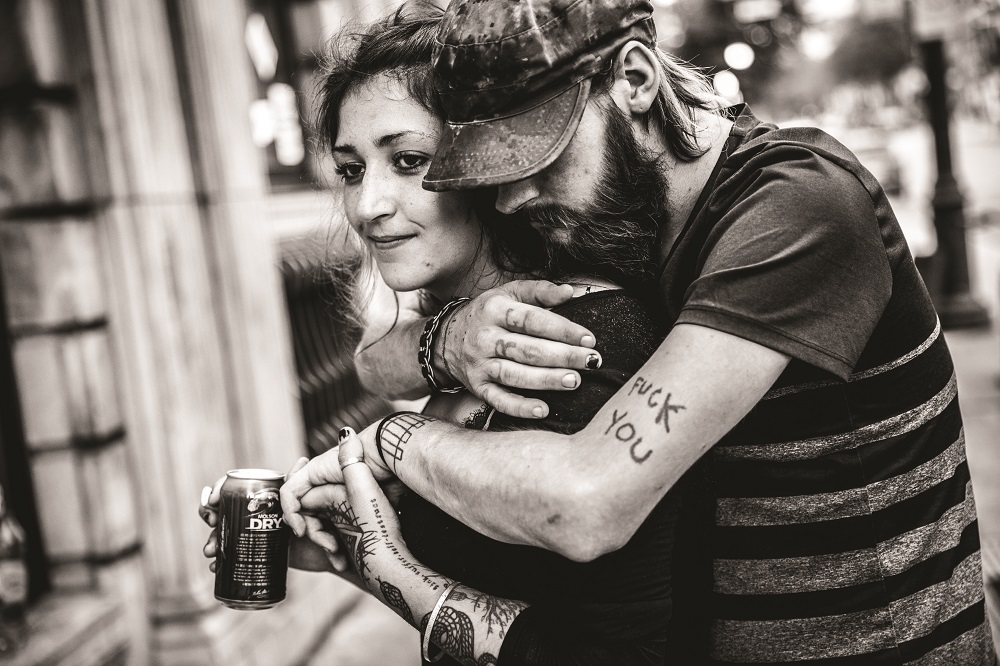
One body for one dose
According to Jason, the first victims of the horrors of the street are women. “It’s definitely dangerous for them,” he tells me. “That’s often why we see duos on the street: being in a couple it can be a way for women to protect themselves.”
One of the threats to street women is prostitution. “When I wash windshields on the street with a girl, at least once a day a motorist will ask her to have sex with her,” says Brendan. “These men could be anyone: fathers, elderly men, young people.”
Of course, not all women give in. In Brendan and Jason’s gang, some of the women just play guitar and wash windows to survive. “But at the same time, you have to understand the ones that do it: by polishing windshields, if you’re lucky, you can make $100 in a day. By prostituting yourself, you will earn that $100 in 10 minutes,” says Jason. “However, street girls are often addicted to drugs, so to pay for their dose, they do things they would not normally do.”
According to Jason, girls often ignore the risks they take: “What some people don’t understand is that when you get in a guy’s car, it can get really dangerous. And frankly, when you live on the streets, nobody cares about you. If you disappear, no-one is going to come and get you.”
Last winter, Jason was dating a girl who was using a lot of drugs. One day, he discovered that she was prostituting herself to pay for her fix. “When I realised it, I left her,” he admits. “I may be old-fashioned, but I’m not very into polygamy.”
Since then, he says that he’s been keeping away from street girls. “It may sound weird, knowing I’m on methadone and I’m a squeegee, but I’m trying to find myself some serious girls.”
Moreover, according to him, drugs do not prevent people from falling in love. In fact, its quite the opposite. “When you’re really addicted to opioids, you don’t have much sexual desire anymore. What you have left is love: a platonic love. I saw people who could no longer have sex but who loved each other like crazy.”
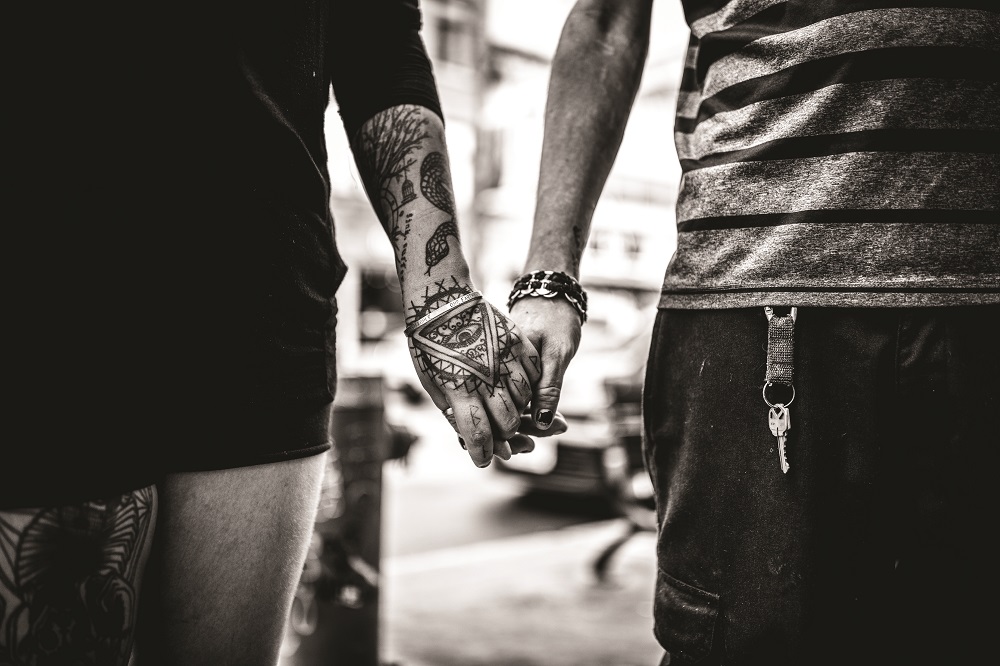
The excitement of the street
I’m curious about how people maintain a sex life when they’re on the streets. When I bring up the subject, Jason and Brendan laugh. “For sex, there are always small alleys where it is possible. Sometimes a person will come by, but you try not to pay attention to it,” Brendan says. “Besides, it can be exciting: there are people who like to do it in public. To be honest, I don’t care. I think it spices things up a little.”
“You don’t do that in a neighbourhood where there are children in the middle of the day,” Jason adds. “We don’t want to shock people either. You put a blanket over yourself or you do it late at night when there are not many people on the streets.”
In terms of protection, the two friends claim to be conscientious. “I’m very serious about using a condom,” Jason says. “Right now, I have five in my pocket. There are so many diseases today. Especially here. Street people are not the cleanest people on earth.”
He turns to Brendan like a father making sure that his son has learned some lessons about sex education. “Right now, you’re in a relationship and you’re faithful: are you sure that you don’t have AIDS?”
“Yes, I often do blood tests at my methadone clinic,” Brendan responds.
After half an hour, I can tell that the men are getting impatient. It’s time to go back to work. Brendan lingers for a few seconds. “You know; love can change someone,” he says. “It made me want to keep going. For the moment anyway. And not only carnal love, but also brotherly love. Friendship, you know.”
Later that day, a young girl who was also in the squeegee gang preferred to keep her distance and didn’t want to talk to us. With a beer in her hand, she explained: “I just got up. Come back another time.”
Translated by Louise Wilson




